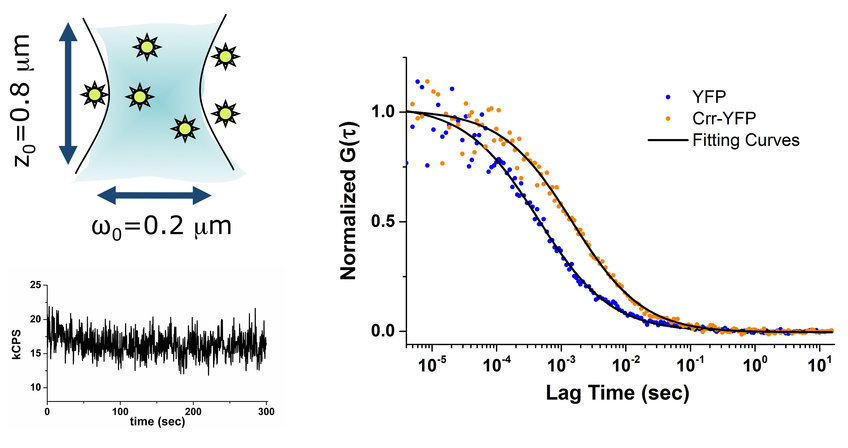Fluorescence Microscopy
Fluorescence microscopy allows to image living cells with high spatial and temporal resolution. The core facility is equipped with a confocal and a widefield microscope. The LSM880 Zeiss confocal microscope, besides imaging of optical sections (z stacks) and time lapse measurements (up to several days), allows to acquire spectrally resolved images. The Nikon Ti-E widefield microscope, equipped with a highly sensitive EMCCD camera, is used for automatic multi-position imaging on multi-well plates. Cage incubators are available on both instruments allowing image acquisition at physiologically relevant temperatures.

The distance-dependent Förster Resonance Energy Transfer is used for measuring protein-protein interactions. The figure shows examples of acceptor photobleaching measurements.
The microscopes can be used, together with experienced staff, also for measuring protein-protein interactions and protein diffusion with advanced imaging approaches such as Förster Resonance Energy Transfer (FRET) and Fluorescence Correlation Spectroscopy (FCS). Our instruments are optimized to measure FRET with several approaches: acceptor photobleaching FRET (also in automatic way in multi-well plates), ratiometric FRET (both at the single cell and population level) and fluorescence lifetime imaging FRET.

FCS, a fluorescence fluctuations based approach, measures the diffusion of fluorescent fusions in living E. coli cells.
Several groups in the institute are equipped with both basic and advanced microscopes. The list and the contact persons are available under the section “Microscopes in research groups”.

